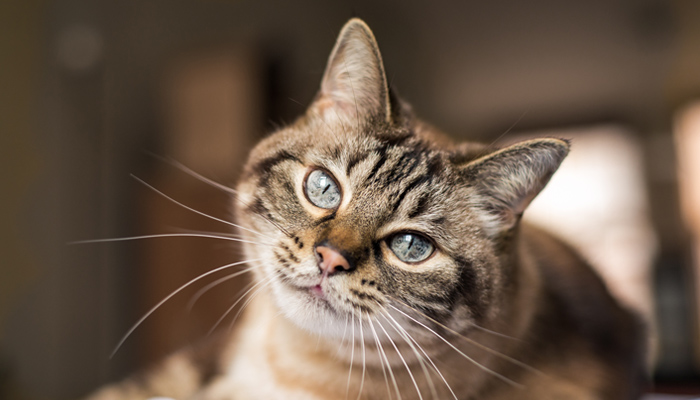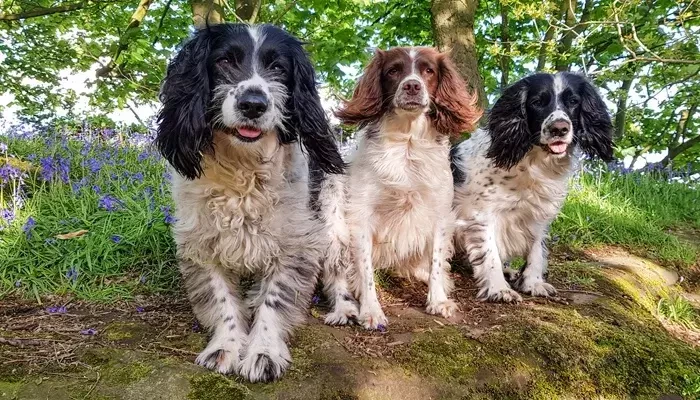Adopting an Older Cat or Dog
When does a kitten become a cat?
Most cats are considered mature when they reach about a year old, but they may keep growing for longer. Most cats will have reached their final weight and size by the time they are a year and a half old, but some larger breeds such as Maine Coons don’t stop growing until they are about four years old!
Most cats are considered mature when they reach about a year old, but they may keep growing for longer. Most cats will have reached their final weight and size by the time they are a year and a half old, but some larger breeds such as Maine Coons don’t stop growing until they are about four years old!
The advantages of adopting an adult cat
There are a number of advantages to adopting an adult cat over a kitten - the first obvious reason being that the cat is already fully grown, so shouldn’t get any larger (unless you feed it too much!) This means you can plan accordingly around the size of your cat when purchasing items such as cat beds, as they won’t grow out of them.
Fully grown cats often exhibit different personalities from their kitten selves - if you adopt a kitten based on its playful temperament, you might be dismayed to later discover that the matured cat only likes to sleep! When you adopt an adult cat, it’s already come into its adult personality, so you should be able to find a cat with the perfect attitude for your home. Senior cats are also more used to human interaction and so would be a good fit if you have children, as kittens that don’t understand the rules of playtime might start biting.
If you live alone, or don’t have the energy to look after a kitten that’s got the ‘zoomies’, then an adult cat would likely be your best bet. Adult cats are generally calmer and experienced, so are less likely to panic when left alone, and their chill personalities mean that they don’t need supervising or as much attentions as kittens. There’s also a good chance that they’re already house and toilet-trained. With their independence and relaxed personalities, they’re especially good companions for older or disabled people with limited mobility.
If you adopt an adult cat from a shelter, the staff there should be able to let you know more about the cat’s personality and history, so you can feel assured that you can provide the best for the cat. It’s also often a lot cheaper to get adult cats than kittens, and they will have likely already been spayed and given shots (make sure to check with the shelter first).
Adopting an adult cat that’s been abandoned, or whose previous owner has passed away or has had to give up their pet as they are no longer able to care for it, means that you are giving a brand new home and family to an animal that is less likely to be adopted in comparison to young kittens. Most cats who end up in adoption shelters are there by no fault of their own, and need new loving homes.
When does a puppy become a dog?
Most dogs are considered mature when they reach about a year old, but this can depend based on the breed and size. Larger dogs may take up to two years to reach their full size. Dogs also go through an extended ‘adolescent’ period in their first or second year - they mature slower than cats, so they are still learning and developing later into their lives (and so require more training and handling).
The advantages of adopting an adult dog
Like with cats, when you adopt an adult dog it will likely already be fully grown and therefore should not get any larger (unless you feed it too much!) This is even more important to consider with dogs as the biggest pooch can be several times larger than the biggest cat! That Alsatian puppy might be adorable, but may not be a great idea if you live in a small home. With a fully grown dog, you can be sure about the space you can provide for them, and it will be easier to prepare your home with correctly-sized items such as dog beds and collars.
When you adopt an adult dog, its personality is already developed and established - so you know exactly what you will be getting. A playful puppy might develop into a dog that only wants to nap! Adult dogs are also likely to already be house-trained, but if they’re not, it doesn’t have to be an issue. Older dogs are just as able to learn new tricks as puppies are (despite the saying!)
If you adopt an adult dog from a shelter, the staff there should be able to let you know more about the dog’s personality and history, so you can feel assured that you can provide the best for the dog. It’s also often a lot cheaper to get adult dogs than puppies, and they will have likely already been given their shots (make sure to check with the shelter first).
Genetic problems in dogs often show up before a dog turns about four years old, so you can be aware of any possible issues that the dog might face when it comes to health. With a puppy, you may not discover genetic health issues until later when they develop during the dog’s adolescent period.
The disadvantages of adopting an adult dog
Dogs are likelier to be given up for bad behaviour than cats are. While many adult dogs looking for adoption are perfectly able to adjust to new families quickly, there are dogs that have learned bad behaviours that may be difficult to shake. Dogs that bite or bark loudly are not suitable for families with small children, and so unless you can take the time and effort to safely train and rehabilitate an adult dog, it may not be the best fit for you.
Puppies will not have these learned behaviours, so their personalities can be more easily moulded to their new homes. However, if you have the ability and confidence to help a dog that may have experienced trauma or abuse from previous owners, it can be an incredibly rewarding experience to give an animal a safe and loving home.
Adopting a senior dog which is near the end of its natural lifespan can be an off-putting idea to many potential owners, as there is the worry of investing time and love in a dog that will die within a few years. However, this can also be a rewarding experience for many, as you will be giving a loving home to an elderly dog in its twilight years - many senior dogs are gentler and wiser than their younger counterparts, and are just as deserving of caring homes as brand-new puppies.
Cat and dog insurance from Towergate
Whether you choose to adopt a kitten or a senior dog, having the correct cover is a vital part of being a pet owner.
Healthy Pets can cost an insurance policy to protect your cat or dog, providing you with peace of mind so you can just enjoy their company. Contact Healthy Pets today for a quote on 01730 230 564 or visit our cat insurance and dog insurance pages for more information.
Healthy Pets and Towergate are part of the Ardonagh Group.
The disadvantages of adopting an adult cat
Although most cats that end up in shelters are there by no fault of their own, there are some cats that are given up because of their abrasive personalities and bad tempers. This may not be ideal if you have children - bad-tempered cats can scratch and bite, and don’t like to play. However, if you have the time and space to help rehabilitate a cat that may have developed an angrier or antisocial personality due to past trauma, then you will be giving a new lease of life to an animal that deserves a loving home as much as any other cat.
Adopting a senior cat which is near the end of its natural lifespan can be an off-putting idea to many potential owners, as there is the worry of investing time and love in a cat that will die within a few years. However, this can also be a rewarding experience, as you will be giving a loving home to an elderly cat in its twilight years - you could be missing out on the perfect furry friend by rejecting a cat based on its age.
Date: April 17, 2019
Category: Other








